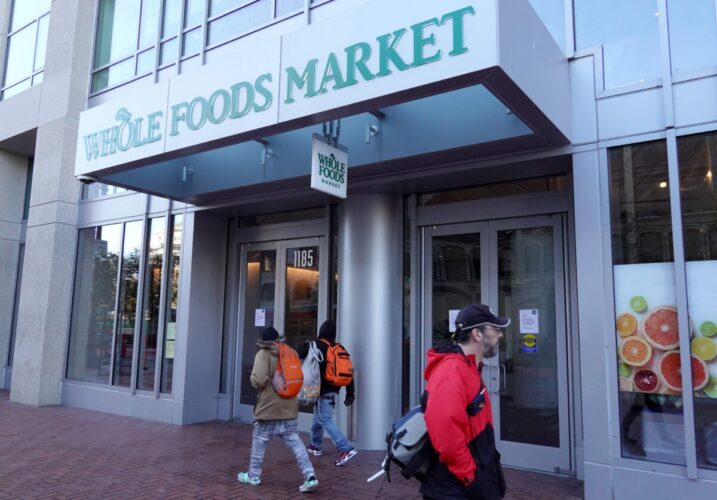Lawmakers in San Francisco, California introduced a bill last week to allow local residents to sue grocery stores for fleeing the crime-ridden city without sufficient notice. The effort, backed by members of the city’s Board of Supervisors, also requires supermarkets to find other stores to take their place, preventing the rise of urban “food deserts” in undesirable, high-crime areas.
Introduced by Board members Aaron Peskin and Dean Preston (a registered Democratic Socialist), the Grocery Protection Act mandates that any grocery store moving out of San Francisco must provide the city with at least six months’ notice and either find another store to replace them or provide area residents with a plan for alternative grocery solutions. Stores impacted by natural disasters, business downturns, or other circumstances that are not “reasonably foreseeable” are exempt from the requirement.
If stores fail to provide proper notice of their departure, the legislation allows those affected by the closure to sue for damages. The act is based on a similar proposal approved by the Board in 1984 and then vetoed by then-mayor Dianne Feinstein.
“It was a good idea in 1984, and it’s an even better idea now,” Preston said in a press release. “Our communities need notice, an opportunity to be heard, and a transition plan when major neighborhood grocery stores plan to shut their doors. Meeting the food security needs of our seniors and families cannot be left to unilateral backroom decisions by massive corporate entities.”
Learn the benefits of becoming a Valuetainment Member and subscribe today!
Peskin and Preston’s updated proposal comes in response to multiple major store closures in recent months—most of them caused by a wave of theft and violent crime compounded by San Francisco’s drug and homelessness problems.
Late last year, Amazon-owned Whole Foods closed its flagship Market Street location after employees and customers placed a staggering 568 emergency calls from the store in a 13-month period. Incidents ranged from vagrants attacking shoppers and defecating on the floor to groups of thieves making off with armloads of stolen items.
In March, a Safeway supermarket in the Fillmore district of the city also closed, selling the property to a real estate developer for housing and commercial use.
Related: “99 Cents Only” Stores Close All 371 Locations Over Inflation and Theft
The closure of these grocery chains—as well as other franchises like Adidas, AT&T, and Nordstrom that are abandoning their stores in downtown San Francisco—has been mirrored across the rest of the state of California as well. The nearby city of Oakland saw a similar wave of store shutdowns earlier this year, losing three Target locations, several Starbucks, an In-N-Out restaurant, and the city’s last full-service grocery store.
Connor Walcott is a staff writer for Valuetainment.com. Follow Connor on X and look for him on VT’s “The Unusual Suspects.”



















Add comment